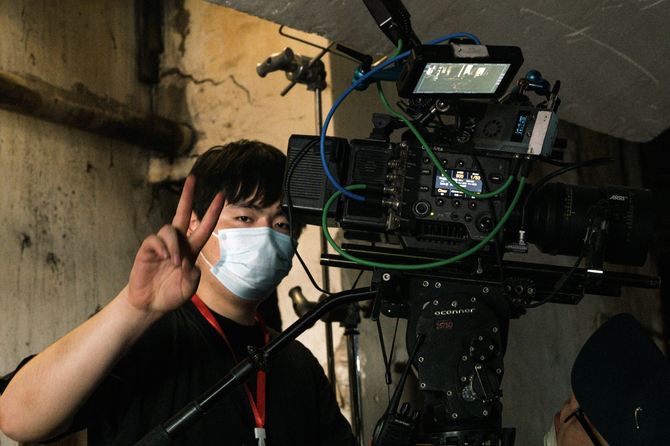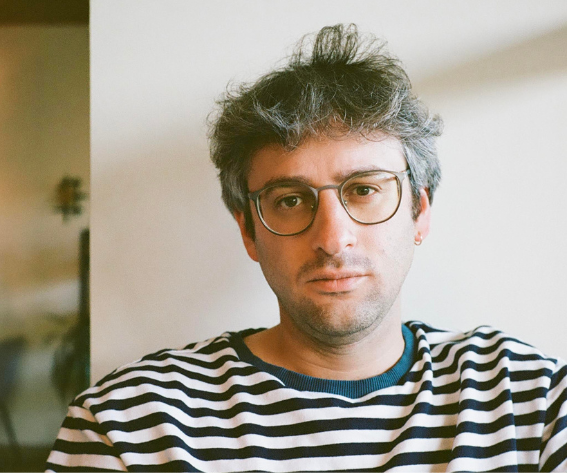I know I say this pretty much every month, but it was very difficult to choose a winner for April’s film of the month. We had a story about an old man faced with a terrible loss, a haunting experience that vividly depicted sleep paralysis, and a sad tale about an extremely toxic relationship. Ultimately, it was Soldiers who got the top spot, and so we had a chat with its director, Zhaoshuai Wu.
JL: Congratulations for your great success! Has ‘Soldiers’ done well so far at film festivals and competitions?
ZW: So far, “Soldiers” has been doing well and has won some awards.
JL: Could you tell us more about the title that you chose for your movies – Soldiers?
ZW: The Chinese name of this movie is “Fighting Chicken.” I chose to call it “Soldiers” for the following reasons: first, because the character I selected is a veteran who still possesses the temperament of a soldier even in old age, demonstrating his ongoing struggle. Secondly, just like his fighting cock, he persists in fighting until the very last moment of his life. The name “Soldier” also symbolizes the indomitable spirit of life depicted in this film.
JL: There is something very universal about how we deal with old age – across the whole world. Why did you choose this topic?
ZW: First of all, the subject I photographed was my grandfather. His life experience is truly legendary. He lived through the Second World War and endured the Great Famine in Henan, China in 1942, even experiencing a period of begging. After the founding of the People’s Republic of China in 1949, he served as a captain responsible for production tasks and participated in the construction of the Great Hall of the People in Beijing. However, in my impression, he has always been an ordinary farmer in the rural areas of western Shandong. During the COVID-19 epidemic in 2020, his health suddenly deteriorated, not due to COVID-19 itself, but because of a sudden fall, which led to a decline in his physical condition. This incident made me acutely aware of the uncertainty of life. In a conversation with him, I showed him a photo from 30 years ago, but he couldn’t recognize himself. He pointed to everyone standing beside him in the photo and laughed. This deeply touched me as he revealed the sad fact that they had all passed away. It was this experience that led me to choose this theme for my creative endeavor.
JL: Your film reminded me in a way of David Lynch’s ‘The Straight Story’, and also perhaps the more recent ‘Lucky’ (2017). What were your own sources of inspiration for making ‘Soldiers’?
ZW: I really like director David Lynch, but I haven’t seen the two movies you mentioned. My inspiration for making the movie “Soldiers” came from my family and what I observed and experienced when I was in the hospital during the COVID-19 epidemic.
JL: The quiet rural life, and the old man’s house were almost characters themselves! In which part of China is the film set in, and does this play a part in the story?
ZW: This film was shot in my hometown, a village in the western part of Shandong Province, China. Our county is called Shen County, and it is the setting of the famous traditional Chinese story “Water Margin.” In the book, Wu Song’s story in Shizipo, where Dahu and Sun Erniang opened their shop, takes place near my house. If you have the opportunity, I hope you can come here to visit, and I will warmly welcome you with the highest local hospitality. It is precisely because of this setting that I incorporated a section of traditional opera called Shandong Kuaishu at the beginning of the movie “Soldier.” Additionally, the western part of Shandong is known for its cockfighting culture, and the characters you see in the film are inspired by the people who reside in this region. Furthermore, this area is in close proximity to Qufu, the birthplace of Confucian culture, and is deeply influenced by Confucian principles. It is due to these influences that the characters in the movie make the choices they do.
JL: I absolutely loved the opening sequence, with the old man visiting his friend and finding a moment of great happiness in watching the roosters fight. The cinematography and editing were wonderful – and in fact, Cai Guoqing won the Cinematographer of the Month award. How happy are you with the final result?
ZW: I am extremely satisfied and grateful for winning the award for best photography. Guoqing Cai was filled with excitement upon hearing the news of his victory. Once again, I would like to express my heartfelt gratitude. Thank you.
JL: Luo Song’s music was very effective in evoking the right emotions time and time again, and for this it won Best Score of the Month. Have you worked with Luo Song before?
ZW: Luo Song and I collaborated for the first time, and we had a wonderful time working together. Of course, during the music-making process, I might have put her through some challenges. We spent six months going back and forth, constantly revising and fine-tuning. Luo Song is an exceptionally talented film soundtrack artist, and I am eagerly looking forward to our continued collaboration in future projects.
JL: Are you working on any other projects at the moment?
ZW: To be honest, I don’t have any projects currently in progress. However, I have two topics in mind that I would like to explore. Both stories are set in this region. One revolves around the discussion of religious issues in this area, while the other focuses on researching children’s involvement in crimes. As you are aware, both topics are highly sensitive.
JL: It’s been a great pleasure watching your film and talking to you! We at TMFF look forward to watching more of your work in the near future!
ZW: Thank you again!









Leave a reply